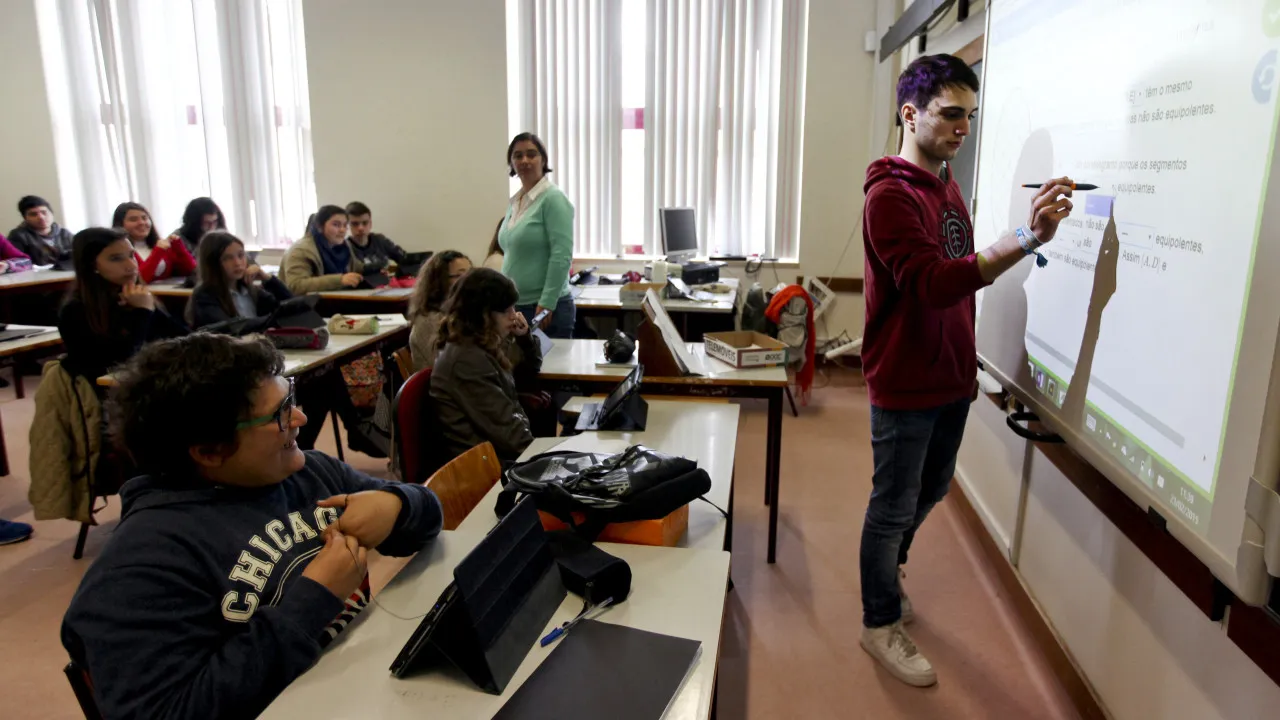
A report by the Universidade Nova de Lisboa reveals that approximately 4,000 teachers will retire each year until the 2033-2034 academic year. The findings, presented by the Minister of Education, Science, and Innovation, Fernando Alexandre, during a meeting with school directors in Lisbon, underline a significant challenge for the government, prompting an announcement of measures to boost new teacher training in the coming decades.
The Ministry of Education, Science, and Innovation (MECI) will fully fund the training costs for graduates in basic education and master’s in teacher training, specifically targeting high-demand areas such as the Lisbon Metropolitan Area, Setúbal Peninsula, and the Algarve.
Fernando Alexandre stated, “Faced with the identified needs, what we will do is establish a contract, which is still under negotiation, but there is already a proposal on the institutions’ side,” addressing journalists after the meeting.
The funding for these courses will be aligned with higher education’s financing model and will be goal-oriented. The minister mentioned, “There will be compensation based on the number of graduates to incentivize more teacher training.”
The aim is to have higher education institutions open more classes or create new teacher training courses. “This is an issue that will affect the entire country, and these initial program contracts, set to commence in 2025, are aimed at priority areas to signal the need for a swift response,” he emphasized.
The minister highlighted that education departments nationwide “must prepare to address this challenge, not just for the next five years or decade but for the upcoming decades.”
Additionally, MECI plans to review the qualifications of teachers (those trained in the scientific area they teach but not holding teaching diplomas) and the in-service professionalization, which is to be simplified. Eligibility will require at least one year of experience instead of five.
During the meeting with school directors, the ministry announced the continuation of some measures from the previous year under the Plan + Classes + Success, addressing the teacher shortage.
“We are maintaining those that worked, those that effectively brought thousands of new teachers into the system,” declared Fernando Alexandre to the media.
He illustrated with examples such as travel allowances, which benefited 2,807 teachers, career extension beyond retirement age, which retained 1,496 teachers in schools, and overtime, which starting next year will be more flexible, allowing the deduction of additional hours from the non-teaching duties teachers must fulfill in schools.




